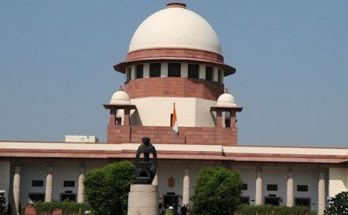
New Delhi: The Supreme Court is set to begin hearings today on a high-stakes legal battle over the recently enacted Waqf Amendment Act, 2024. A total of 73 petitions questioning the constitutionality of the legislation will be examined by a three-judge bench led by Chief Justice of India Sanjiv Khanna, alongside Justices Sanjay Kumar and KV Viswanathan. The proceedings are scheduled to commence at 2 PM.
The legislation, which received presidential assent from President Droupadi Murmu on April 5 after its passage in Parliament, has ignited a national debate and prompted widespread legal and political resistance. While the central government insists the amendments aim to bring transparency and efficiency to the management of Waqf properties, opponents contend the law infringes on religious freedom and constitutional safeguards.
In anticipation of possible judicial intervention, the Centre has filed a caveat in the apex court, requesting that it be heard before any interim relief is considered.
States Join the Fray
Seven state governments have approached the court in support of the central government, seeking to intervene in defence of the amended law. These states includes: Madhya Pradesh, Chhattisgarh, Assam, Rajasthan, Maharashtra, Haryana, and Uttarakhand, maintain that the legislation is constitutionally sound, non-discriminatory, and necessary to modernise Waqf administration and curb mismanagement.
A Wide Array of Petitioners
The opposition to the law is broad-based, featuring an alliance of political leaders, religious organisations, and civil society actors:
Political Leaders: Petitioners include AIMIM MP Asaduddin Owaisi, AAP MLA Amanatullah Khan, TMC MP Mahua Moitra, RJD MPs Manoj Kumar Jha and Faiyyaz Ahmad, and Congress MP Mohammad Jawed.
Religious Bodies: The Samastha Kerala Jamiathul Ulema, All India Muslim Personal Law Board, and Jamiat Ulama-i-Hind, represented by its president Maulana Arshad Madani, are among the prominent religious groups challenging the law.
Opposition Parties: Congress, Trinamool Congress, CPI, YSR Congress Party, Samajwadi Party, Tamilaga Vettri Kazhagam (TVK), RJD, JDU, AIMIM, AAP, and the Indian Union Muslim League have also filed or backed petitions.
Other Petitioners: Two Hindu petitioners—advocate Hari Shankar Jain and Parul Khera, a Noida-based resident—have raised objections as well. Jain claims that provisions of the Act enable illegal encroachment on government and Hindu religious lands.
Key Legal Concerns Raised
The petitioners have flagged several contentious provisions in the amended law, including:
Removal of Elections: The scrapping of elections to Waqf boards is seen as undermining democratic representation.
Inclusion of Non-Muslims on Boards: Critics argue this infringes on the Muslim community’s right to self-govern its religious institutions.
Property Safeguards Weakened: The Act is said to dilute protections for undocumented Waqf properties and eliminates the “Waqf by user” principle long upheld by Indian courts.
Tribal Exclusion: A clause preventing Scheduled Tribe members from establishing Waqfs is being called discriminatory.
Increased Executive Control: Petitioners warn this opens the door for arbitrary government interference.
Threat to Heritage Sites: Concerns have been raised that the changes could lead to the loss of Waqf status for historic properties.
Broad Amendments: The 35 changes introduced by the Act allegedly diminish the autonomy of state Waqf boards and may facilitate conversion of religious properties into state-controlled land.
With widespread implications for religious and property rights, today’s hearing is expected to mark a crucial moment in the ongoing discourse on secular governance and minority protections in India.


